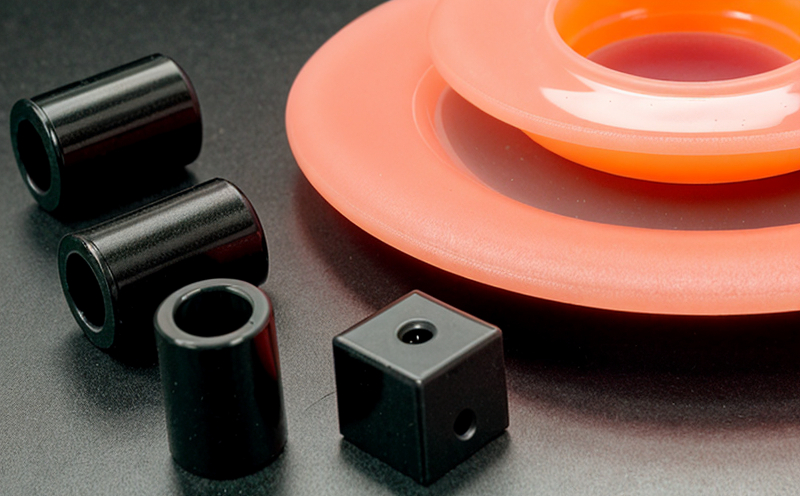NF EN 15186 Scratch Resistance Testing of Plastic Leisure Surfaces
The NF EN 15186 standard specifies a method for determining the scratch resistance of plastic materials intended to be used as leisure surfaces, such as those found in playground equipment, sports facilities, and recreational areas. This test is crucial for ensuring that these surfaces can withstand wear and tear from frequent use by children and adults alike. Compliance with this standard not only enhances product durability but also ensures safety through the prevention of injuries caused by sharp edges or unstable components.
The testing procedure involves exposing the plastic specimen to a stylus under controlled conditions, typically at room temperature, until it either fails due to scratching or reaches a specified number of cycles. The scratch resistance is then measured based on the depth and extent of the scratches inflicted upon the surface. This method allows manufacturers to assess how well their products will perform in real-world environments.
The standard’s scope covers various types of plastics used in leisure applications, including polyethylene (PE), polypropylene (PP), polystyrene (PS), and others. These materials are chosen for their durability, affordability, and ease of manufacturing, making them ideal for use in high-traffic areas where frequent contact is expected.
Compliance with NF EN 15186 ensures that products meet the rigorous quality expectations set by regulatory bodies and industry associations. It helps to safeguard public safety by preventing accidents associated with poorly designed or manufactured surfaces. Additionally, it supports the reputation of companies committed to producing high-quality, reliable products.
Manufacturers who adhere to this standard can benefit from increased market credibility, improved customer satisfaction, and reduced liability risks. By demonstrating their commitment to quality through rigorous testing, they can build trust with consumers and stakeholders. Furthermore, compliance helps businesses stay ahead of industry trends and regulatory changes, ensuring long-term success.
For quality managers, compliance officers, R&D engineers, and procurement professionals involved in the development and sourcing of leisure plastics, this standard provides a clear framework for evaluating product performance. Understanding its requirements enables them to make informed decisions about material selection, manufacturing processes, and quality control measures.
Why It Matters
The scratch resistance testing outlined in NF EN 15186 is essential for several reasons:
Enhances durability: Ensuring that plastic leisure surfaces can withstand repeated use helps extend the product’s lifespan, reducing maintenance costs and environmental waste.
Improves safety: A higher scratch resistance reduces the risk of injuries from sharp edges or unstable components, contributing to safer recreational environments.
Safeguards reputation: Compliance with international standards demonstrates a company’s commitment to quality and customer satisfaction, enhancing its market standing.
These factors collectively contribute to maintaining high levels of safety, reliability, and performance in leisure plastics.
Benefits
Increased durability: Products that pass NF EN 15186 testing are more resistant to wear and tear, extending their useful life span.
Better safety: Reduced risk of injuries from sharp edges or unstable components enhances the overall safety of recreational areas.
Enhanced reputation: Compliance with international standards boosts a company’s credibility and market position.
These benefits are particularly valuable in sectors where product reliability and user safety are paramount, such as sports facilities and playgrounds. By investing in robust testing protocols like NF EN 15186, manufacturers can ensure that their products meet the highest standards of quality and performance.
Customer Impact and Satisfaction
The results of NF EN 15186 testing have a direct impact on customer satisfaction by ensuring that leisure plastics are safe, durable, and reliable. For end-users, this means fewer trips to the repair shop or replacement of damaged components. Parents can rest assured knowing their children play in an environment designed with safety in mind. Additionally, businesses benefit from reduced warranty claims and improved brand loyalty.
For procurement teams, compliance with NF EN 15186 ensures that they source materials meeting strict quality criteria. This reduces the risk of supply chain disruptions due to substandard products and helps maintain consistent product quality across multiple projects.





